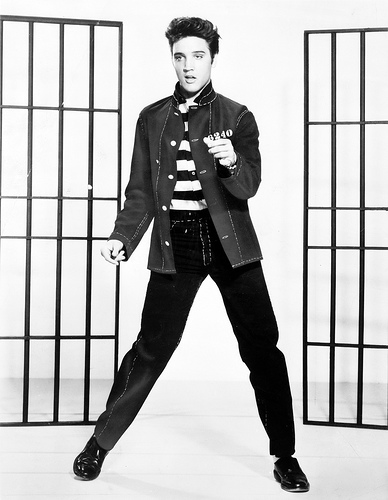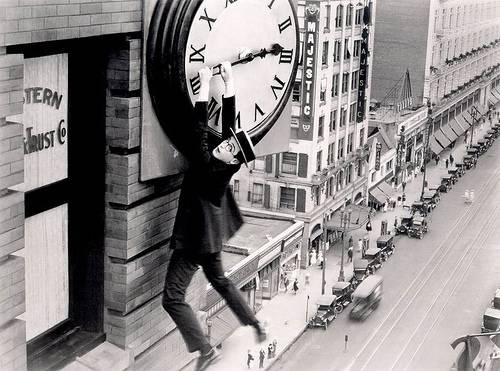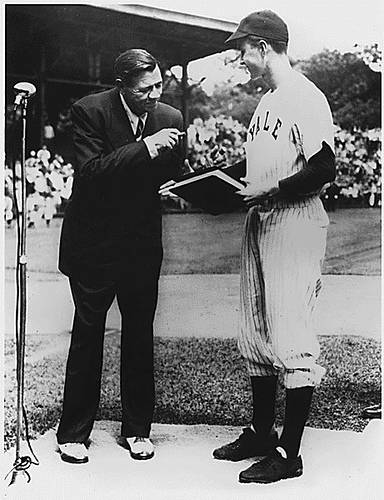BRITNEY SPEARS is an anagram of PRESBYTERIANS.
Entertainment
Pride of Place
In a film’s opening credits, the director always comes last.
Don’t Be Cruel

Elvis Presley had an eighth-degree black belt in karate.
Good Grief
Charlie Brown’s baseball team has a win-loss record of 2-930.
Unquote
“I’m just glad it’ll be Clark Gable who’s falling on his face, and not Gary Cooper.” — Gary Cooper, declining the lead role in Gone with the Wind
Boomerang
In seeking a costume for the character Professor Marvel in the The Wizard of Oz, the MGM wardrobe department found a tattered Prince Albert coat in a secondhand store in Los Angeles.
One afternoon actor Frank Morgan turned out the coat’s pocket and discovered the name “L. Frank Baum.” By a bizarre coincidence, they had chosen a coat once owned by the author of The Wonderful Wizard of Oz.
This sounds dubious, I know, but cinematographer Hal Rosson, his niece Helene Bowman, and unit publicist Mary Mayer have all vouched for the story.
“We wired the tailor in Chicago and sent pictures,” Mayer told Aljean Harmetz for the book The Making of The Wizard of Oz. “And the tailor sent back a notarized letter saying that the coat had been made for Frank Baum. Baum’s widow identified the coat, too, and after the picture was finished we presented it to her. But I could never get anyone to believe the story.”
Unquote

“Who the hell wants to hear actors talk?” — H.M. Warner, co-founder of Warner Brothers, 1927
Live and Let Die
James Bond never really explains why he likes his martinis “shaken, not stirred,” so in 1999 the University of Western Ontario’s biochemistry department decided to find out.
They discovered that a shaken gin martini has stronger antioxidant properties than a stirred one — which would help Bond avoid cardiovascular disease, stroke, and cataracts.
In their writeup for the British Medical Journal, they conclude, “007’s profound state of health may be due, at least in part, to compliant bartenders.”
See also Silly Old Bear.
Strange Bedfellows

In 1948, a few months before his death, Babe Ruth visited Yale to donate a copy of his autobiography. He presented it to the captain of the school’s baseball team.
The captain’s name was George Bush.
Unquote
“It will be gone by June.” — Variety, writing off rock ‘n’ roll, 1955
